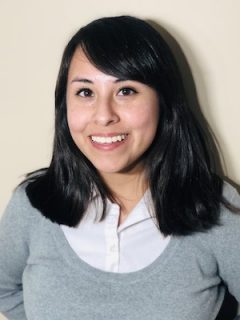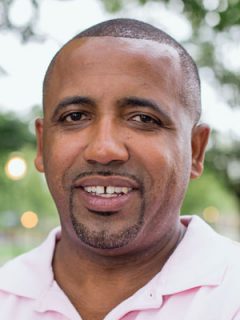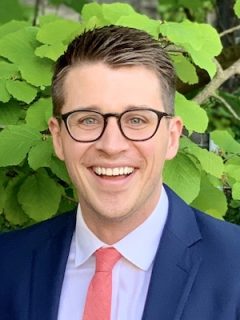Retrospective Survey Data
In March 2019 we conducted our first Retrospective Survey to learn how the Weekend of Recovery and Day of Recovery retreats had benefited Alumni. The following information was gathered from retreat participants about their experiences before and after completion of one of our retreats.
Program Staff

Uma P. Dorn
PhD, PC
Co-Director for PEP
Uma, has been working in the mental health field for over 15 years and has worked in multiple outpatient and inpatient settings. She currently works as a licensed psychologist at the University of Utah as the Assistant Director of Psychology & Wellness in the Department of Athletics.

Peitao Zhu
PhD
Co-Director for PEP
Peitao is an Assistant Professor of Counseling at Northern Illinois University. He is a National Certified Counselor and License Professional Counselor in the state of Illinois. He received his Ph.D. in Counseling and Counselor Education from Syracuse University and M.A. in Mental Health Counseling and Behavioral Medicine from Boston University School of Medicine.

Ysabel Hinojosa
Clinical Research Assistant
Ysabel graduated from the University of Texas Rio Grande Valley in May 2017 with a Bachelor of Arts in Psychology and a Minor in Addiction Studies. After completing her Master’s Degree in Mental Health Counseling & Wellness at New York University, she plans to pursue a Ph.D. in Counseling Psychology.

Kenton Kirby
LCSW
Clinical Research Assistant
With up to 20 years of experience, Kenton previously worked in the child welfare system in New York City as well as a Forensic Social worker throughout the New York court system. He has been an adjunct lecturer at the graduate and undergraduate level in New York City and has a wide array of experience providing individual and group therapy to those with complex mental health needs in sex offender, parenting, and drug treatment programs.

Drew Wiggins
BS
Clinical Research Assistant
Drew is a doctoral student in clinical psychology at Wayne State University. Following graduating with honors from the University of California, Los Angeles (UCLA) with the Chancellor’s Service Award, Drew joined Teach For America as a secondary science teacher in New Haven, Connecticut, where he later became a finalist for the Teach For America Sue Lehman National Teaching Fellowship Award. Drew went on to deepen his work pursuing educational equity through coaching first-year teachers in anti-racist praxis and pedagogy and leading Teach For America’s talent and operations strategy throughout the state of Connecticut.
As a doctoral student, Drew focuses his clinical work and research on racial and sexual gender minorities, with an emphasis on male-identifying survivors of sexual victimization. Drew takes an intersectional, gender justice, and systemic equity lens in the hopes of contributing culturally relevant work that can inform future empirical research and interventions for populations historically marginalized and disenfranchised throughout the United States.
Participants
- 1516 total alumni thru 12/3118
- 422 total unique/active alumni
- 75 of 422 alumni recipients enrollees in Survey as of 3/28/19 (18% of total data bank have enrolled)
Demographics
Age
- 0 aged 18-24
- 4 (8%) aged 25-34
- 5 (10%) aged 35-44
- 14 (28%) aged 45-54
- 18 (38%) aged 55-64
- 9 (18%) aged 65+
Race
- 48 Caucasian/Euro-American/White
- 1 Asian
- 1 Mexican-Latino
Survey Data
Most impactful program areas:
- Interaction with facilitators – 80% “extremely helpful”
- Small group activities – 67% “extremely helpful”
- Preparing/Telling my story – 66% “extremely helpful”
- Establishing safety guidelines – 63% “extremely helpful”
- Music – 58% “extremely helpful”
- Shame busting – 58% “extremely helpful”
- Mind-body Awareness – 45% “extremely helpful”
As noted by the top three program areas identified above, the most impactful parts of WORs are the interaction and healing that occurs with others.
The following graphs are average ratings across all participants for each category according to the below rating scale:
Rating Scale
1 – 7 Likert Scale
1 = Not a problem
4 = A problem
7 = An Extreme problem

Prior to WOR, 24 participants rated depression as a 6 or 7 (extreme problem), whereas at the time of the survey only 5 rated depression as a 6 or 7, and 24 rated depression as “no longer a problem”.
29 participants rated anxiety as a 6 or 7 (extreme problem), whereas at the time of the survey zero rated depression as a 6 or 7, and 23 rated anxiety as “no longer a problem”.
19 participants rated mood swings as a 6 or 7 (extreme problem), whereas at the time of the survey zero rated mood swings as a 6 or 7, and 24 rated mood swings as “no longer a problem”.

Prior to WOR, 32 participants rated shame as a 6 or 7 (extreme problem), whereas at the time of the survey 3 rated shame as a 6 (zero rated a 7), and 35 rated shame as “no longer a problem”.
Prior to WOR, 21 participants rated traumatic flashbacks as a 6 or 7 (extreme problem), whereas at the time of the survey 3 rated traumatic flashbacks as a 6 or 7, and 29 rated traumatic flashbacks as “no longer a problem”.
When asked about BEHAVIORS experienced prior to, immediately after, and several months after the WOR, participants endorsed significantly decreased levels of avoidance, hypervigilance, dissociation, isolation, sexual problems (including addiction and performance issues), and sleep problems (including nightmares).

Prior to WOR 25 participants rated avoidance as a 6 or 7 (extreme problem), whereas at the time of the survey 7 rated avoidance as a 6 or 7, and 21 rated avoidance as “no longer a problem”.
Prior to WOR 25 participants rated hypervigilance as a 6 or 7 (extreme problem), whereas at the time of the survey 6 rated hypervigilance as a 6 or 7, and 26 rated hypervigilance as “no longer a problem”.
Prior to WOR 19 participants rated dissociation as a 6 or 7 (extreme problem), whereas at the time of the survey 5 rated dissociation as a 6 or 7, and 30 rated dissociation as “no longer a problem”.

Prior to WOR 23 participants rated isolation as a 6 or 7 (extreme problem), whereas at the time of the survey 2 rated isolation as a 6 or 7, and 27 rated isolation as “no longer a problem”.
Prior to WOR 20 participants rated sexual problems as a 6 or 7 (extreme problem), whereas at the time of the survey 6 rated sexual problems as a 6 or 7, and 21 rated sexual problems as “no longer a problem”.
Prior to WOR 22 participants rated sexual problems as a 6 or 7 (extreme problem), whereas at the time of the survey 7 rated sexual problems as a 6 or 7, and 20 rated sexual problems as “no longer a problem”.
Survey Feedback Comments
Many of the participants had tried other programs for healing. When asked how WOR was different from other programs these were some of the responses:
The education was much more welcoming and safe. It wasn’t just a classroom setting where I was lectured and then given a workbook, but rather a hands-on environment where I was able to experience and feel safety rather than just read about it. I was strengthened as I watch others feel the same safety that I was experiencing as we learned.
They were explicitly for male survivors. I have been a part of many groups and organizations, but sexual abuse was always something I hesitated to share. My most vivid memory of the level one weekend I went to was sitting in a room of 50 or more men and knowing that they all understood something of what I had been through.
It was great to have counselors who cared so much. It was great to meet other people dealing with the same trauma as I have experienced.
The WOR was phenomenal! The staff was AMAZING. That weekend helped me realize that I truly am not alone. There are others that have suffered through a similar trauma and they are experiencing the same effects of that trauma. I wish there were words that could express my gratitude to each of you. I mean that very sincerely.

